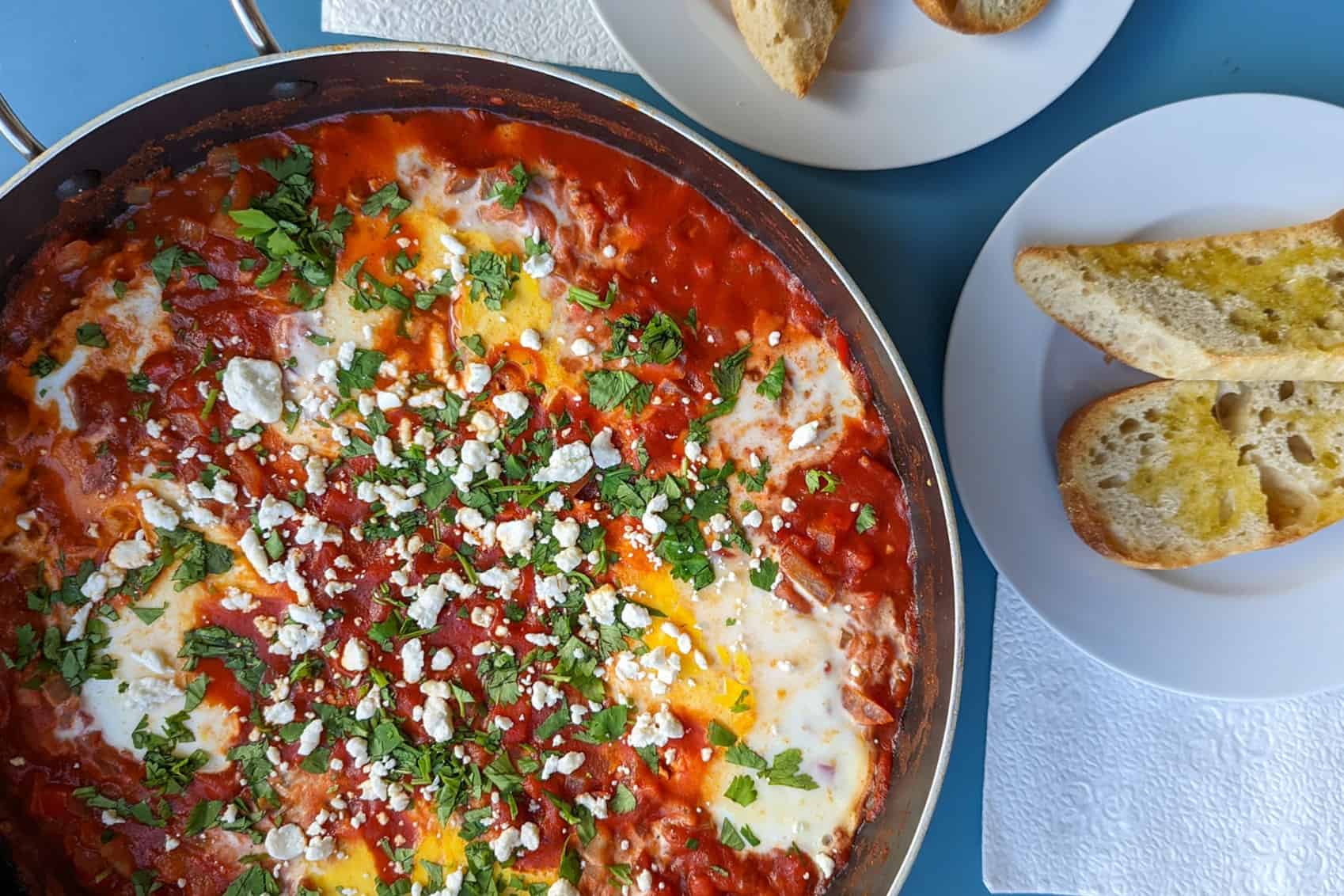Teaching yourself to cook doesn’t have to be intimidating! This month, we’re sharing our tips for learning to cook on your own – like we did – plus inspiration for how to enjoy cooking more.
This post may contain affiliate links. As Amazon Associates and through other affiliate programs, we earn from qualifying purchases if you click on a link – at no extra cost to you. We only promote products we actually use and truly love!
Here’s a fun fact: when Alex and I started food blogging, we had no idea what we were doing. Technical aspects aside, we knew very little about cooking and recipe development. But we’ve always had a passion for food, so we began our journey as The Candid Cooks to hold ourselves accountable and learn how to cook delicious meals at home. Almost two years later, we’ve learned that teaching yourself to cook doesn’t have to be intimidating – because if we can do it, you can too!
While we’ll never stop learning how to cook and working to refine our skills, our focus has shifted towards teaching you, our readers, how to become better home chefs. We’ve come so far already and want to share every bit of our self-taught knowledge with you for one very important reason: so that you can make restaurant quality meals at home, right in your own kitchen.
Keep reading for our best advice on teaching yourself to cook, and how to actually enjoy cooking so that you stick with it!
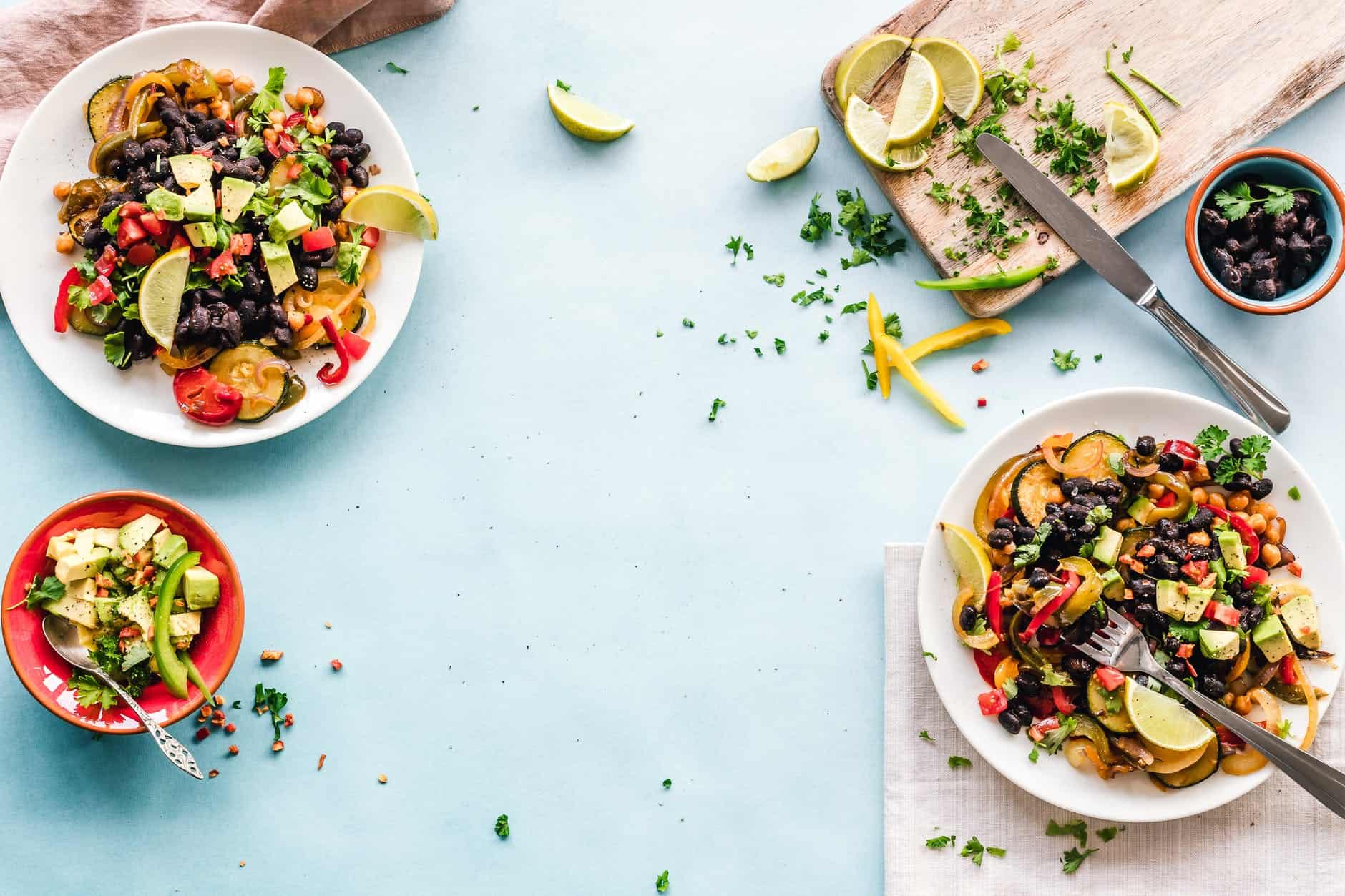
Teaching Yourself To Cook
Only a few months before launching our blog, we were the prime example of two average college grads who could follow a basic recipe (keyword: basic). But we also had to Google “how to make rice” way too often and couldn’t tell you what “deglazing” meant. So you could definitely say we were lacking in some areas.
But we wanted to learn to cook our favorite restaurant meals at home, instead of eating out and spending money. So we started small and relied on the skills we already had, which included breading chicken and making simple “recipes” with mostly store-bought ingredients. Not a whole lot to go off of…
…Until we realized something. We needed to challenge ourselves in order to learn and grow! We’d never get better at cooking until we actually pushed ourselves to try things outside of our comfort zone. So our journey to become better home chefs evolved into The Candid Cooks, a place to document our cooking experiments – including the successes and the failures – and hopefully inspire others to do the same.
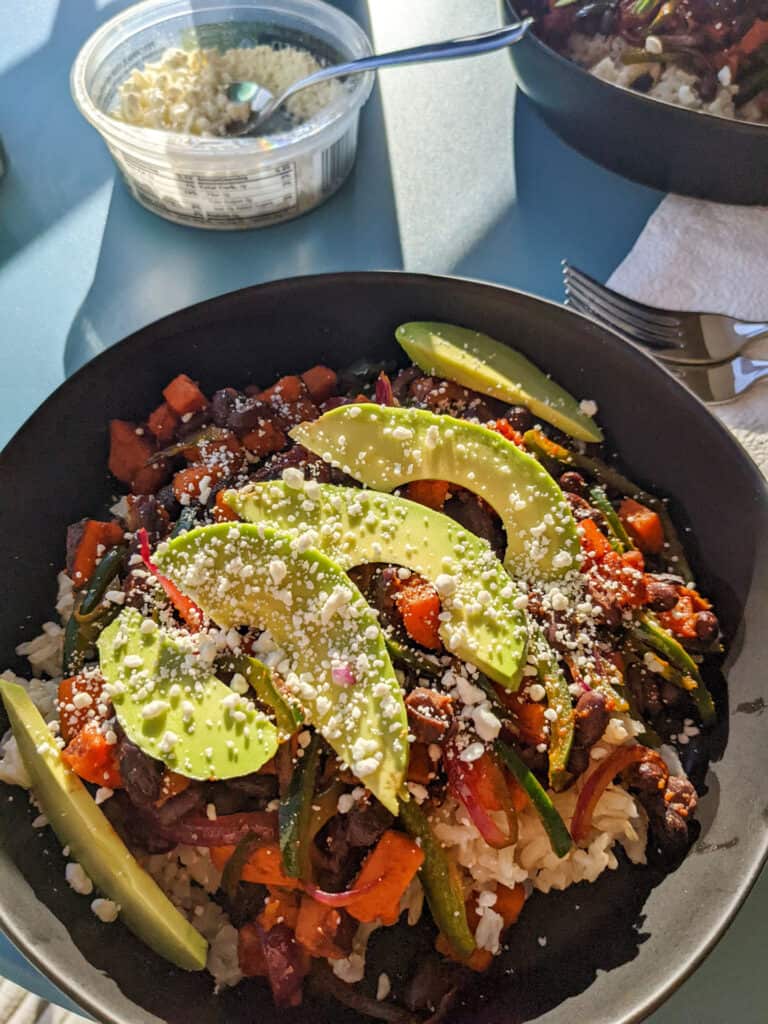
Here’s our best advice for teaching yourself to cook, based on our own experience:
Start small.
You don’t want to overwhelm yourself by tackling too many new ingredients, techniques, or recipes all at once – so focus on only one thing at a time. That could be making a tried-and-true recipe you can cook in your sleep (even if it’s as basic as a grilled cheese) while switching up one ingredient. Or maybe you make a killer chicken cutlet in the oven, but have you tried cooking it in the air fryer? Or frying it in that cast iron skillet you got as a gift and haven’t used yet? The best way to learn how things work is to change one variable at a time, then figure out if you liked it, didn’t like it, what went right, what went wrong, and why.
Take advantage of online resources.
Food blogs like ours are a wealth of knowledge when it comes to cooking techniques, ingredient suggestions, and recipes! Use these resources to your advantage. The more recipes you try making, the more you’ll learn – especially if you take the time to read the information that often accompanies recipes on food blogs. We thoroughly cover all the ingredients and methods used in our recipes to help give you the best chance of success. After all, we’ve already experimented and failed along the way so that you don’t have to.
Don’t be afraid to fail.
That being said, we can’t stress this one enough – it’s so important to fail! So even though we try to set our readers up for success, it’s important to try putting your own spin on the recipes you find, and be okay with potentially failing. For a long time, we were afraid of having something go horribly wrong and ending up with mush for dinner. But as soon as we got over that fear, we realized that our failures were some of the most valuable learning opportunities (more on that below). Our best tips for getting over fear of failure when it comes to cooking? Make small portions so you don’t waste a ton of food if something goes wrong, and always have a backup plan.
Learn from failure.
Like we said, failure is one of the best ways to learn in the kitchen. Now, there are varying magnitudes of “failure,” and depending on how far along you are in your cooking journey they may or may not be extreme. If a recipe totally fails (read: catches on fire, is burnt to a crisp, or results in anything inedible), then you’ll probably learn that you need to back up a few steps before trying it again. But failure can also look something like this: you make a stir fry and some of your veggies are super overcooked while others are still crunchy and raw. Think about why that is. You haven’t completely ruined dinner, but maybe you’ve learned that certain veggies need to cook longer than others. And next time you make stir fry, you’ll know not to add all the veggies to the wok at the same time. Failure makes room for curiosity, which leads to understanding, and ultimately, to success!
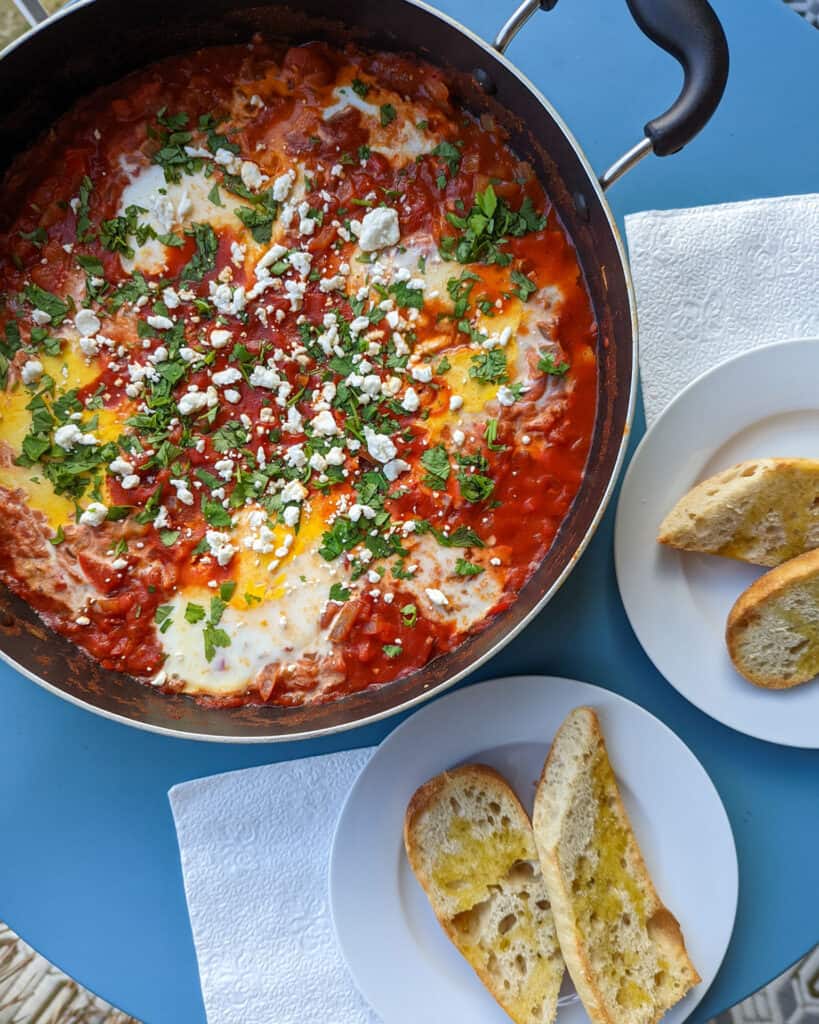
Get creative.
Do you ever start cooking and then realize you’re missing a key ingredient? We’ve all been there. Instead of panicking and running to the store, see if you can pivot and try a different (but similar) ingredient – this is a great way to challenge your cooking skills. And while this might require a more involved understanding of how substitutions work (especially for baking), it may be as simple as trying a different kind of cheese in your mac n cheese. Or working with coconut oil in place of butter. It doesn’t have to be crazy. And yeah, it might end up failing – in which case, you’ll learn something new – so maybe don’t try this when you’re having guests over. But it could also end up being delicious, like this story of how chocolate chip cookies were invented. You never know until you try!
How To Enjoy Cooking More
Cooking is a necessary part of life, whether you like it or not – so why not have fun with it?
Don’t get me wrong, there were definitely times in college (before we started blogging) when cooking felt like a chore. I would get sick of making the same three recipes I knew how to cook over and over again. Or I’d be too lazy to go grocery shopping and never have the right ingredients available. But then there were times when it was relaxing, therapeutic even – especially when I needed a break from studying. And when I put in just a little effort to plan my meals, go shopping for specific ingredients, and craft a delicious dinner for myself, it was super rewarding.
The key difference here? I gave myself a positive reason to cook. It was an escape from studying, time for a mental break, time to focus on nourishing my body and taking care of myself. Instead of saying, “ugh, I have to figure out what to cook tonight because I need to eat,” I reframed my thoughts into, “I get to spend time making a delicious dinner tonight.” Everyone’s reason will be different, but if you can find your positive spin on why you cook, it just might make it more fun.
In case you need inspiration, we have a few ideas! Keep reading for a few of our favorite ways to make cooking more enjoyable.
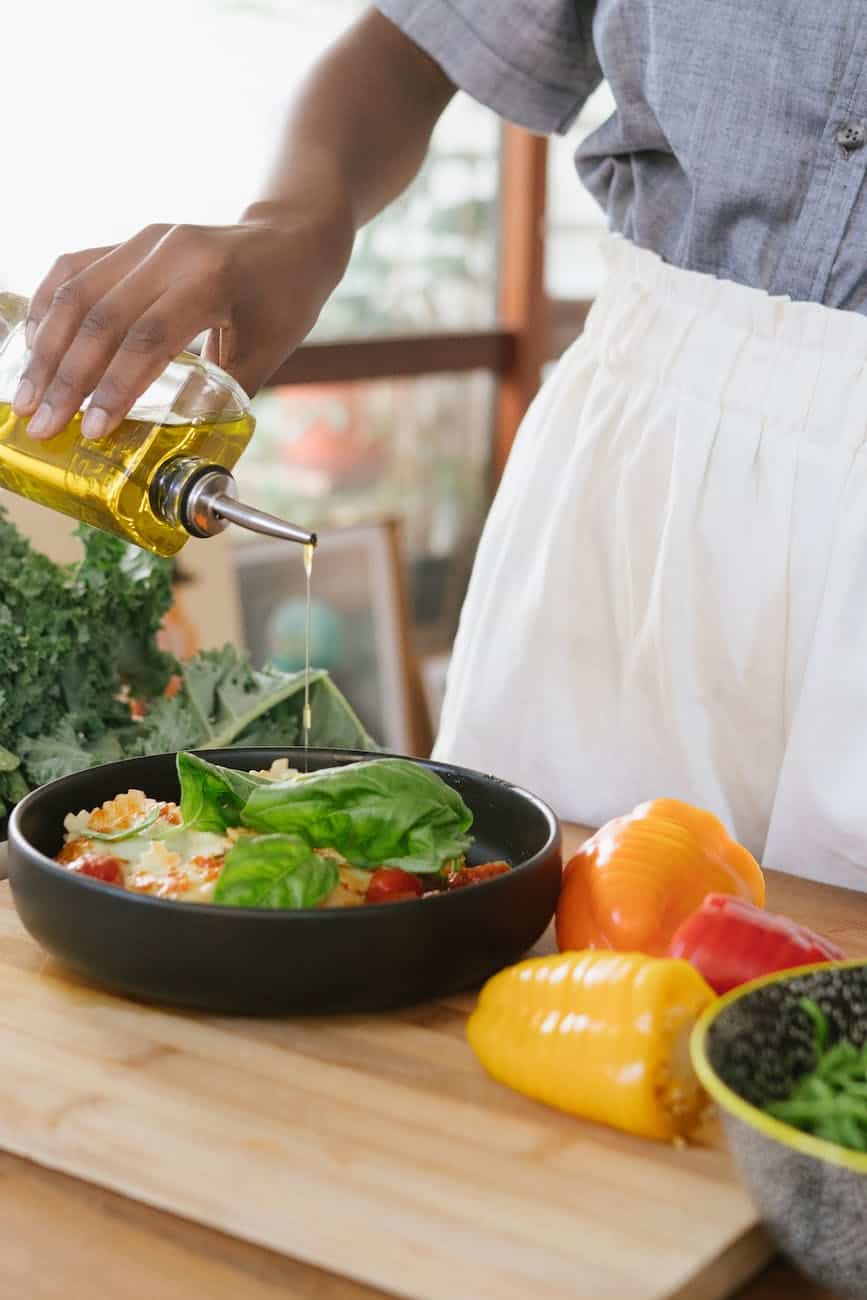
Build it into your schedule and plan ahead.
If you really want to like cooking but just don’t know how, it might be that you simply need to make time for it. I’m a huge culprit of dreading something just because I “don’t have enough time” for it, when really the thing itself isn’t so bad. Try blocking out enough time in your schedule to actually cook a meal, from grocery shopping to prep time to cooking, eating, and cleaning. Yes, there are a lot of steps involved in cooking, and it does take time. But as soon as you get over that mental block of “not having enough time,” you might find you enjoy cooking more than you thought.
If you truly don’t have enough time for cooking, there are ways to help cut out some of the steps. You can always try grocery delivery, stick to simpler recipes like these 20-minute sheet pan fajitas, or only use dishwasher-safe items so you don’t spend as much time cleaning. You could even stick to only slow cooker recipes on busy days and let the food cook itself! Finding shortcuts that work for you will make cooking feel like much less of a hassle, and hopefully more fun.
Make it an activity.
Instead of thinking about cooking as a chore, find ways to turn it into a fun activity! Whether it’s making dumplings with the whole family, topping a pizza with your significant other, or simply turning on music while meal prepping, find a way to pair cooking with things that already make you happy. Sort of like the concept of habit-stacking (read more about it here), these happy associations will reinforce the habit of cooking. And the more you cook, the better you’ll get at cooking, which means you’ll actually want to cook more. Soon enough, you’ll be crafting delicious meals at home – and actually enjoying it!
Cook with love.
It’s true what they say, food cooked with love really does taste the best. If you’re asking how to enjoy cooking more, try putting your heart and soul into it! If you hate following recipes, then don’t try to follow recipes. Cook intuitively, and do what feels natural for you. Or maybe you do like using recipes, but you want to put your own spin on the flavors and ingredients. Do it! Recipes are there to guide you, not to constrain you.
Cook foods that are meaningful to you. Use ingredients that are meaningful to you. You’ll enjoy cooking so much more if you let yourself be free to experiment and do what feels right. Stop worrying about following recipes perfectly or using the healthiest or trendiest ingredients. Simply cook to make food that tastes good to you and your unique palate, and you might be surprised at how much fun you’ll have.
There are so many benefits to being able to cook good food at home. You’ll save money, eat healthier, and have more control over your diet. Not to mention, food brings people together – cooking with your loved ones will create memories, and maybe even traditions, that last forever. So why not teach yourself to cook and have fun with it? Develop your skills, learn to fail, and truly find enjoyment not only in the dish you make, but in the ingredients, the process, and all the steps along the way.
If you have any questions regarding the information presented in this post, please refer to our Nutrition Disclaimer here.
Looking for kitchen inspiration? Head over to our shop to see what we cook with every day, plus recommendations for foodie gifts and eco-friendly products.

